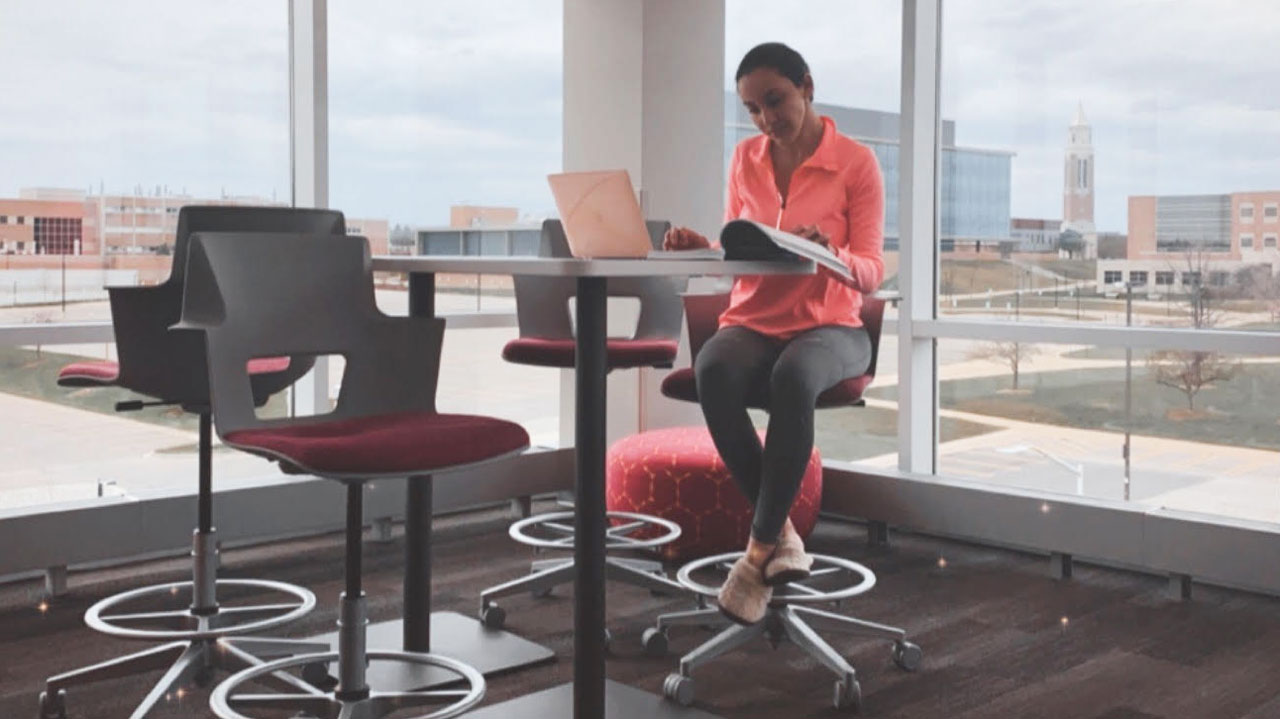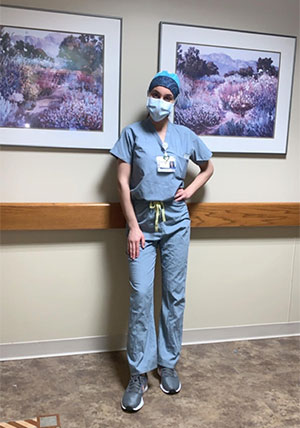- YouTube
- TikTok
Psychology major balances academics with caring for COVID-19 patients
Rose Hazem, a nursing assistant at Beaumont Hospital, Troy, is living in OU's Hillcrest Hall with more than 60 other health care workers

For the past four years, OU student Rose Hazem has worked as a nursing assistant in the cardiac progressive care unit at Beaumont Hospital, Troy. But these days, there are no cardiac patients in the unit. Instead, the rooms are occupied by COVID-19 patients fighting for their lives.
“We’re full COVID now,” she said. “We’re not even taking cardiac patients at this point.”
Rose Hazem, a psychology major from Sterling Heights, is one of more than 60 health care workers living in Hillcrest Hall. |
Hazem is one of more than 60 health care workers who have taken up residence in OU’s Hillcrest Hall, a move intended to curb the spread of a highly contagious virus that, to date, has infected more than 40,000 people and claimed more than 3,600 lives in Michigan alone.
“I usually live with my mom, my dad and my brother,” said Hazem, who is from Sterling Heights. “I had to move out because I couldn’t risk my family’s health. I decided to take the offer Oakland University gave us health care workers and move to Hillcrest.”
Living on campus since early April, Hazem works the night shift at Beaumont and works toward her bachelor’s in psychology during the day.
“This is actually my first time living on my own,” she said. “It’s kind of scary, especially during the pandemic, but it’s been good so far.”
At her job, Hazem is part of a team that cares for around 20 patients. They range in age from young to elderly. Some have underlying conditions. Some are on ventilators. During the night, Hazem and her colleagues keep a close watch over the patients’ vital signs and oxygen levels.
“The virus really affects your lungs,” she explained. “You don’t get enough oxygen, which can damage organs and lead to organ failure. Some patients have to go on dialysis.”
Hazem works as a nursing assistant at Beaumont Hospital, Troy. |
The crisis has brought new challenges for the entire health care team. Staff have taken extra precautions to prevent the spread of infection, including wearing surgical scrubs, masks and other protective gear when caring for patients.
In spite of the challenges, Hazem knew early on that she wanted a career in health care. She was drawn to the field after seeing the struggles of her cousin, who had suffered seizures as a toddler.
“I stayed with him for so long in the hospital. I saw all the nurses and doctors and how everyone worked together,” she recalled. “When he finally got better, I remember how happy we all were, and to this day he is still doing well.”
She added, “I just love helping people. It’s something I do naturally. I don’t even think about it.”
After finishing her bachelor’s degree, Hazem plans to attend graduate school to become a physician assistant. She credits her psychology background for shaping her perspective on health care.
“It has really helped me a lot,” she said. “I try to understand the patients’ point of view and where they’re coming from and how they think.”


 April 30, 2020
April 30, 2020
